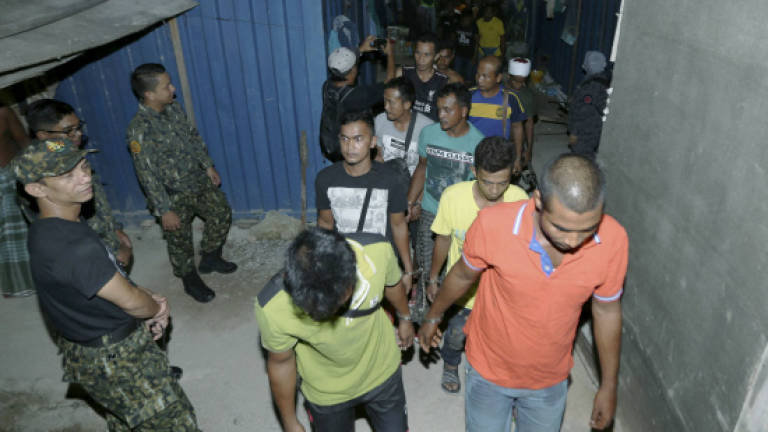KIMANIS: The Sabah temporary pass or Pas Sementara Sabah (PSS) which will be issued from June 1, 2020, is the best mechanism for the state government to address the problem of the many different identity documents in Sabah, said an academician.
Senior lecturer in the Faculty of Humanities, Arts and Heritage, Universiti Malaysia Sabah (UMS), Dr Ramli Dollah, said the PSS will determine the actual number of foreigners in the state and is not meant to give citizenship to illegal immigrants (Pati).
“The PSS will also enable authorities to devise strategies to manage the issue of Pati in Sabah, making it easier to control the number of illegal immigrants in the state,” he told Bernama here.
Ramli said there were too many types of documents being used to determine the presence of migrants in Sabah, including the IMM13 issued to Philippine refugees after martial law was declared in southern Philippines in 1972, as well as the Census certificate and the ‘Kad Burung Burung’.
“Too many different documents will make it difficult for the authorities because there is no standard enforcement, and the different documents will create many enforcement problems,” he said.
Last September, the Committee on the Management of Foreign Nationals in Sabah agreed to issue the PSS from June 1 this year to replace three different documents given to long-staying foreigners in Sabah, namely the IMM13, Census certificate and Kad Burung Burung.
Announcing this decision, Home Minister Tan Sri Muhyiddin Yassin said the PSS is expected to resolve the problem of the differing documents as well as facilitate enforcement and monitoring of the movement of foreign nationals by the authorities.
The record showed there were 51,645 IMM13 holders, 47,518 Census certificate holders and 36,892 Kad Burung Burung holders in Sabah.
The three documents were mostly issued to Filipino nationals, with the IMM13 for those with refugee status, the Census certificate issued under Federal Special Task Force (PPKP) whitening programme, while the Kad Burung Burung was issued in the 1970s until the 1990s.
Ramli said efforts to determine the presence of Pati and manage the situation has been more effective since 1984 through a police census, followed by the ‘Transient Population Study’ conducted by the Sabah Chief Minister’s Department in 1987.
Following the study, in 1988 the Sabah government introduced a new, stricter Immigration Act to address the Pati problem, where among others, immigrants without complete documentation would be detained and deported back to their country of origin, including the Philippine refugees, he explained.
Ramli said efforts to tackle the Pati problem continued when the National Security Council (NSC) formed PPKP in 1989 to register and determine the number of immigrants in Sabah.
He said the task began in 1990 until 1991 before the PPKP implemented a whitening programme in 1996.
On the PSS, Ramli said the temporary pass is an effort to address the increasingly complex issue of Pati in Sabah which is complicated by today’s technological advances. In addition, most documents such as IMM13 do not have security features and can be easily replicated.
As such, the PSS which incorporates security features will prevent the document from being forged.
However, Ramli added, the public and political leaders must be informed that the PSS is not for the purpose of granting citizenship but to address the influx of foreigners into Sabah.
This is necessary to avoid confusion and for the public to understand the concept of the PSS and why it has to be implemented, he said.
Meanwhile, another UMS senior lecturer associate professor Wan Shawaluddin Wan Hassan said the PSS has to be implemented as it has been a while since Malaysia, particularly Sabah, had a good mechanism to determine the population of Philippine refugees who hold the IMM13 and Kad Burung-Burung.
“Thus, the implementation of PSS is necessary to record the presence of foreigners in Sabah and the government has no intention of granting citizenship status to them,” he said.
Earlier, Deputy Home Minister Datuk Azis Jamman said PSS would be in card form with security features such as biometrics, photo and fingerprints, while its implementation would curb forgery of documents and foreigners being cheated in Sabah.
Meanwhile, Normilah Salleh, 38, from Kampung Batu Batu 8 village, Bongawan, said she saw the PSS as an effective initiative to deport PATI with no valid documents or are in hiding.
However, Liovon James, 48, from Kampung Langsat, Bongawan, said the implementation of the PSS has to be closely monitored by the authorities to ensure transparency. — Bernama















